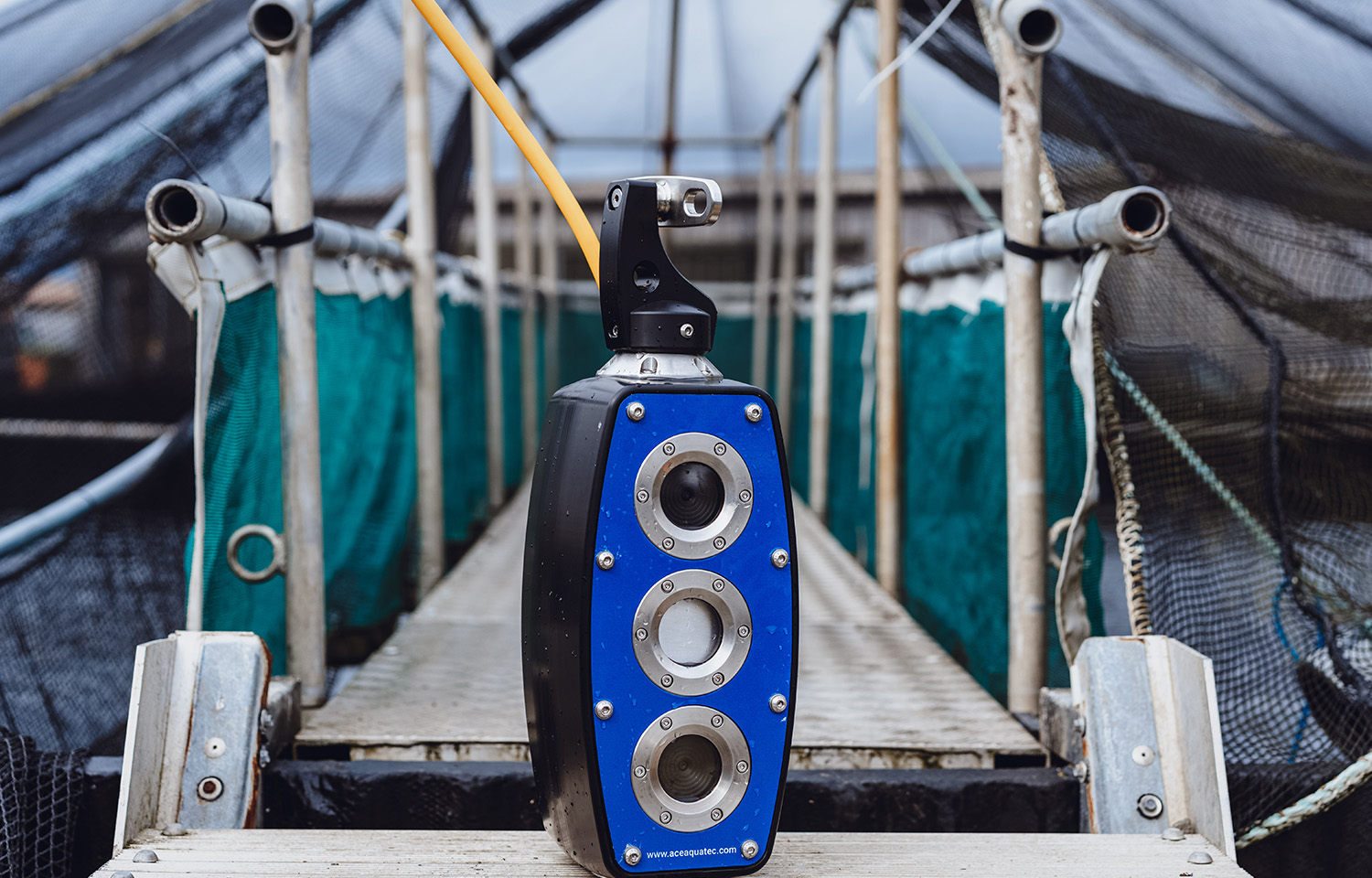East Devonport, Tasmania-based salmon and trout farmer Petuna, which raises fish in the Tamar River estuary at Rowella and in Macquarie Harbour, has partnered with Dundee, U.K.-based Ace Aquatec to use the aquaculture technology company’s underwater biomass-measuring cameras.
Biomass measurements are traditionally taken manually, with fish removed and weighed for sampling, from which an estimate of the total biomass is drawn. But manual measurements are invasive, slow, and require numerous staff members. Fish farmers are increasingly turning to non-invasive and automated measurement methods.
Petuna signed a multi-camera deal with Ace Aquatec in response to successful trials at its Tasmanian sites.
“To have a system that can report the weight of the fish using a non-invasive method will allow us to keep a much better eye on the health and welfare of the animals, not to mention improvements in the working environment for our employees,” Petuna Fish Performance Manager Stuart Atherton said.
In trials at Petuna, the Ace Aquatec camera, which is called A-BIOMASS, measured over 8,000 fish a day with 99.17 percent accuracy. In a release about the partnership, Petuna said that it had chosen the Ace Aquatec technology because of its ability to perform in the challenging environment in which Petuna farms, where high tannin levels and low light dramatically lower visibility.
Atherton said that the system will allow Petuna to measure many more fish than it would be able to manually and will be especially important “during the period from late spring through to early Autumn where water temperatures prevent manual sampling.”
“Ace Aquatec’s A-BIOMASS camera was developed in some of the harshest conditions off Scotland’s west coast and Petuna’s trial demonstrates its flexibility and robustness in some of the most challenging global aquaculture environments – particularly with low light,” Ace Aquatec CEO Nathan Pyne-Carter said.
The system, which combines “AI with non-invasive monitoring, allows farmers to make better-informed decisions that offer significant benefits for fish welfare and farm efficiency” Pyne-Carter said, leading to “improved operational efficiency and greater transparency around feed conversion ratios.”
The companies said that given the geographical distance between Ace Aquatec and Petuna, the technology company would be establishing a local technical support team to aid Petuna in its work in Tasmania.
Ace Aquatec made news in May when it announced that it had raised EUR 10 million (USD 11.7 million) in an oversubscribed investment round led by Stolt Ventures, with participation by Scottish Enterprise and Aqua-Spark. The funding supported fifteen new positions at Ace Aquatech, most of which are focused on integrating AI into Ace Aquatec technologies and supporting the application of those technologies globally.
Source - https://www.seafoodsource.com













